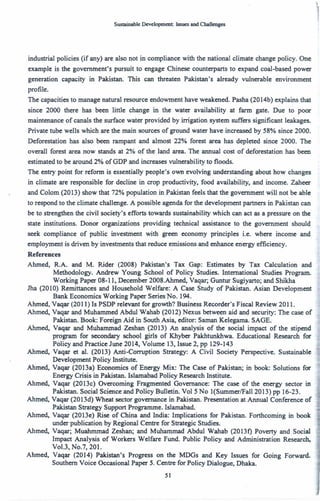The document details the International Conference on Sustainable Development held on April 3-4, 2015, organized by Fatima Jinnah Women University in collaboration with the Higher Education Commission of Pakistan. It covers diverse issues surrounding sustainable development, including economic growth, poverty alleviation, women empowerment, and environmental challenges, with contributions from various national and international experts. Keynote addresses and technical sessions proposed pathways for sustainable development specific to South Asia and Pakistan's socio-economic context.




















